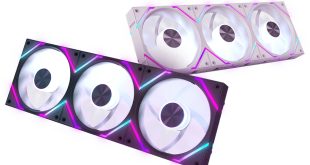While the Jing is marketed as a silent solution, it is still a performance cooler and we before we get out our dB meter we wanted to put it through its paces with our Core i7 970 processor. We first will test at reference voltages and speeds, then crank it to 4.33ghz with a 0.20 core voltage increase.
This combination of reference and overclocked performance will ensure that people can judge the end results and whether it will suit their specific demands. We are also including other coolers which we have tested in the past, such as the Thermaltake Frio, Corsair A70 and Noctua NH D14.
Idle temperatures are measured after 30 minutes resting in Windows and room temperature is maintained at 23c throughout, a comfortable real world environment for most people. We don’t believe in testing coolers on an ‘open bench’ as people at home won’t be throwing parts onto a desk for everyday use.
We measured temperatures with diodes as motherboard readings can often be considerably wrong.
Thermaltake Jing Cooler
Comparison Coolers:
Coolit Vantage
Noctua NH D14
Thermaltake Frio
Thermaltake Contac29
Coolit ECO ALC
Coolink Corator DS
Corsair A70 Cooler
Thermalright TRUE Revision C
Intel Reference Heatsink
Processor: Intel Core i7 970 CPU
Motherboard: MSI X58A-GD65
Memory: Crucial 6GB (3x2GB) Ballistix Tracer 1600mhz DDR3
Graphics Card: Evga 1GB GTX460
Power Supply: Corsair AX850
Hard Drive: OCZ Agility 2
Chassis: Lian Li PC-8FIB
While running tests at reference speeds means it is hard to differentiate between cooler performance, it gives us an initial baseline reading. We now increase the clock speeds by 1.13ghz and raise core voltage by 0.20 for stability in the overclocked state.
When both fans on the Jing Cooler are set to high, the cooler performs a few degrees worse than the FRIO with fans at the lowest settings. When we set both fans to the lowest possible speeds on the Jing then the temperatures rise by another 3 degrees to just under 80c. A strong set of results, especially as the noise levels are extremely low … we discuss this more on the next page.
 KitGuru KitGuru.net – Tech News | Hardware News | Hardware Reviews | IOS | Mobile | Gaming | Graphics Cards
KitGuru KitGuru.net – Tech News | Hardware News | Hardware Reviews | IOS | Mobile | Gaming | Graphics Cards




